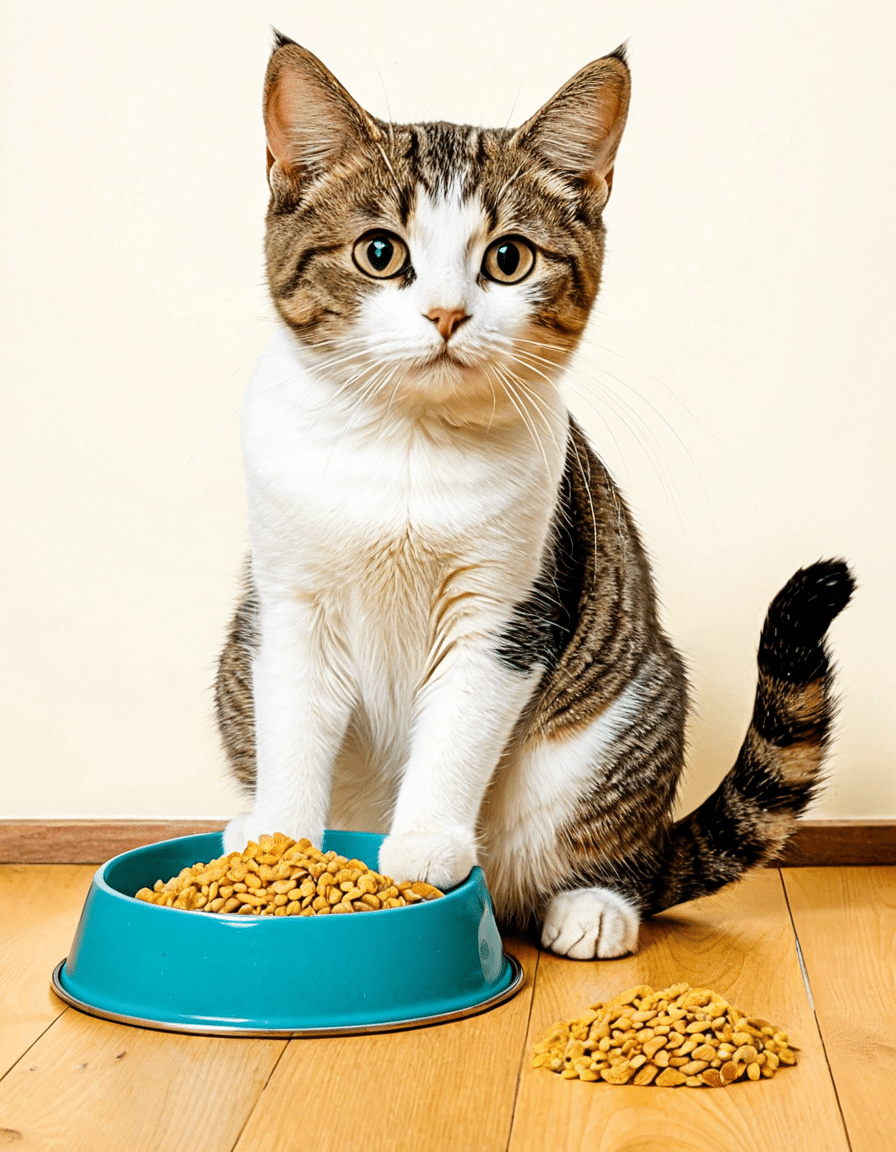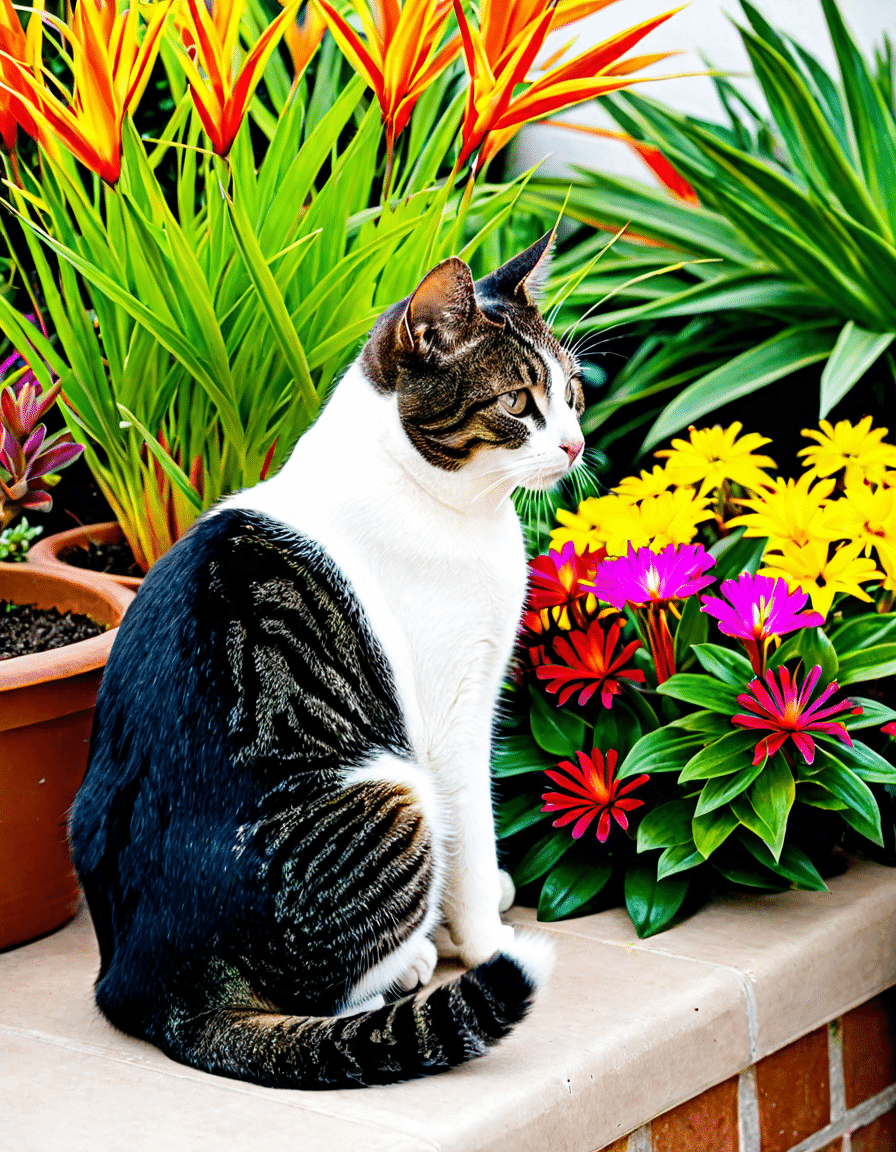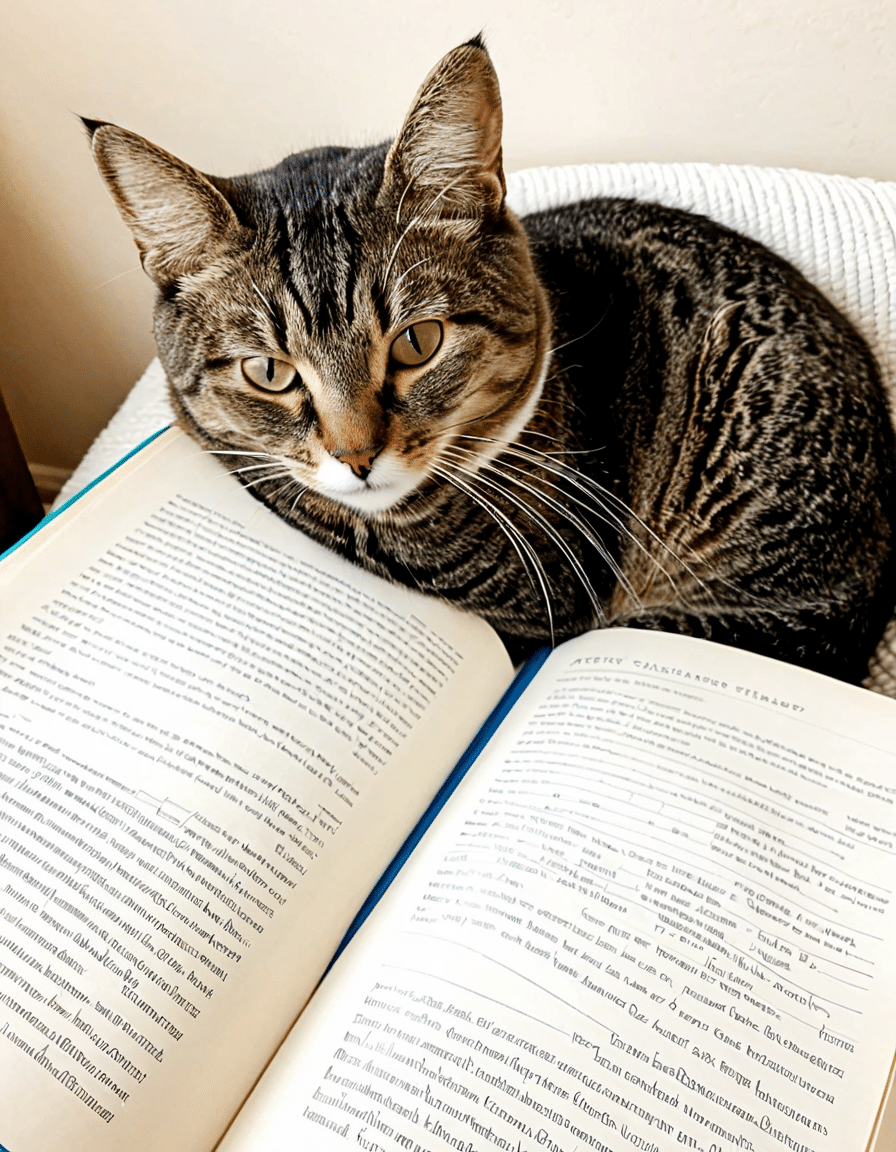Understanding the reasons for cat diarrhea is essential for every pet owner. Diarrhea isn’t just a nuisance; it can indicate significant health concerns. So if you’ve noticed your feline friend has been running to the litter box more often than usual, you’re in the right place. Below are key reasons that could explain why your cat is experiencing this uncomfortable condition.
Top 7 Reasons for Cat Diarrhea
1. Dietary Changes and Sensitivities
Abrupt changes in your cat’s diet can lead to gastrointestinal upset. For instance, switching from their regular cat food to brands like Hill’s Science Diet or Blue Buffalo too quickly can trigger diarrhea. Cats are notorious for having sensitive stomachs, and even high-quality foods might not agree with every feline. If your cat’s been sneaking a bite of your dinner or reacting poorly to catnip-flavored treats, identifying such sensitivities becomes vital.
Keep in mind that many cats are lactose intolerant, meaning dairy can wreak havoc on their digestive systems. Moreover, gluten found in some cat foods can also be a troublemaker. Consider consulting your veterinarian if you’re thinking about making any significant changes to your cat’s diet.
2. Parasites and Infections
Parasites like roundworms and giardia can wreak havoc on your cat’s digestive system, especially in kittens and outdoor cats. These little invaders can lead to notable symptoms, including diarrhea. Regular vet visits are essential, as stool samples can help detect these pests early, enabling timely treatment.
Some common signs that your cat may have parasites include weight loss despite a healthy appetite or a bloated abdomen. Keep a watchful eye, as these infections can spread quickly, causing not just diarrhea but also a host of other complications.
3. Bacterial Infections
Bacteria such as Salmonella or E. coli can cause diarrhea in cats, just like in humans. These bacterial infections often stem from contaminated food or water sources. For instance, raw food diets can pose risks if not handled carefully. An example of this would be a popular raw foods brand that, when contaminated, could lead to illness.
Failing to maintain food safety can expose your cat to these harmful bacteria. Always wash your hands before and after handling pet food and discard any expired supplies. Better safe than sorry!
4. Inflammatory Bowel Disease (IBD)
Chronic diarrhea in cats might result from inflammatory bowel disease (IBD), a condition where the gastrointestinal tract becomes inflamed. Symptoms can include vomiting and persistent diarrhea. Your veterinarian will likely recommend dietary changes or medications for managing this condition.
Regular health check-ups are important if your cat has been diagnosed with IBD. Changes in their food or even medication may be needed over time to keep their symptoms in check. Keeping a diary of your cat’s symptoms can be helpful for monitoring their health status.
5. Pancreatitis
Pancreatitis, or inflammation of the pancreas, can lead to digestive distress in cats. This might come with vomiting and diarrhea, leaving your feline friend uncomfortable. Factors like obesity and high-fat diets can heighten the risk of pancreatitis in cats.
Monitor your cat’s eating habits and adjust the diet accordingly. If you notice signs of obesity, discussing a weight loss plan with your vet could save your cat from more severe issues down the line. Staying proactive goes a long way!
6. Stress and Environmental Changes
Did you know that cats can feel stressed just like we do? Changes in their environment—such as a new home or the introduction of another pet—can disturb their routine. This change can lead to gastrointestinal issues, including diarrhea.
In such cases, using feline pheromone diffusers, like Feliway, might provide comfort. You could also consider behavioral therapy to help ease anxiety. After all, a calm cat is a happy cat!
7. Underlying Health Conditions
Chronic illnesses such as hyperthyroidism or kidney disease can also manifest as diarrhea. Regular veterinary check-ups that include blood work are vital to detecting these conditions early. It’s always better to be safe than sorry when it comes to your furry friend’s health!
If there’s ongoing diarrhea alongside symptoms like lethargy, that could be a significant red flag. Early detection can make a world of difference in managing these health conditions effectively.

Signs Your Cat is Having Diarrhea
Recognizing when your cat is having diarrhea is essential for timely intervention. Look for the following indicators:
If your cat displays any of these signs, it’s crucial to monitor their hydration levels. Fluid loss can quickly lead to dehydration, which can be dangerous for your cat. Always have fresh, clean water available, and consider offering wet food to boost hydration.
When is Cat Diarrhea an Emergency?
Just because your cat has diarrhea doesn’t mean it’s an immediate crisis. However, you should seek immediate veterinary care if:
Prompt medical attention can make a significant difference in your cat’s recovery. Don’t hesitate to follow your instincts; your pet’s health is your top priority.

Maintaining Your Cat’s Digestive Health
Preventive measures can greatly reduce the risk of diarrhea in cats. Here are some actionable tips:
These simple practices can go a long way in keeping your cat healthy.
Final Thoughts on Cat Diarrhea
Understanding the reasons for cat diarrhea is crucial in effective pet care. By observing your cat’s behavior, adjusting their diet carefully, and staying on top of regular veterinary consultations, you can help keep your feline friend healthy and comfortable.
If diarrhea persists or symptoms worsen, consulting your veterinarian is vital for identifying and treating the root cause effectively. Remember, your cat’s health ultimately depends on your attentiveness and proactive management. For more in-depth discussions, check out our articles on Irish Golden Retrievers and Dog Kennel crates. Engaging with quality resources elevates your understanding of pet care, ensuring you make informed decisions.
Always prioritize your cat’s health and well-being; after all, they depend on you!
Reasons for Cat Diarrhea That All Pet Owners Must Know
Understanding the Basics
Did you know that one of the primary reasons for cat diarrhea is a sudden change in diet? Cats can be quite sensitive to their food, and even a small dietary switch can upset their stomachs. This is something many pet owners overlook, much like how some viewers didn’t catch the blind Items hidden throughout their favorite films! Just as these subtle hints can make or break a viewing experience, dietary consistency is crucial for keeping your feline friends happy and healthy.
Another critical factor to consider is allergies. Cats can develop sensitivities to certain ingredients, such as dairy or specific proteins, leading to gastrointestinal upset. Much like how the Dogs And chicken bones myth perpetuates misconceptions about pet safety, many folks might not realize that these dietary triggers could be lurking in their cat’s food! Keep your eyes peeled for new ingredients if your cat suddenly develops an upset stomach.
About Parasites and Infections
Now, here’s a fun fact – parasites! Many cat owners might picture a dog fetching a stick when thinking of these nasty little beasts, but parasites can hit our feline friends, too. Intestinal worms, for instance, can cause diarrhea and are sometimes harder to spot than a hidden pun in a comedy like “The 40-Year-Old Virgin.” Regular vet check-ups are key to keeping these troublemakers at bay.
Infections can also be a sneaky reason for cat diarrhea. Viral or bacterial infections can wreak havoc, but the good news is that most are treatable with the right care. Think of it like a poorly reviewed movie—sometimes you just need a little guidance and The Iron claw Reviews to steer you in the right direction. If your cat shows signs of distress, a quick trip to the vet can help prevent further complications.
Environmental Stressors
Lastly, let’s talk about stress. Yes, cats can get stressed just like us. Big changes—like moving house or introducing a new pet—can lead to tummy troubles. It reminds me of how people react when their favorite show takes a surprising turn, akin to the plot twists in ego official films! Understanding the emotional landscape of your cat can help mitigate these stress-induced episodes of diarrhea.
In conclusion, the reasons for cat diarrhea range from dietary changes and allergies to infections and stress. By identifying these triggers early on, cat owners can save themselves a whole lot of trouble and vet visits. Plus, keeping these facts in mind might just help you avoid some of those dramatic twists—like an unexpected turn in a movie featuring talents like Dara Renee!

When should I be concerned about cat diarrhea?
If your cat’s diarrhea lasts more than a day or two, or if you notice blood or a change in behavior like lethargy, it’s time to contact your vet.
What can I give my cat that has diarrhea?
For a cat with diarrhea, you can try giving them small amounts of plain, cooked chicken or rice, but avoid any dairy, as it can upset their stomach further.
Why is my cat pooping liquid but acting normal?
Sometimes, cats can have liquid poop but still seem perfectly fine. This might be due to dietary changes, stress, or something minor, but keep an eye on them just in case.
How do I firm up my cat’s poop?
To help firm up your cat’s poop, you can consider adding a small amount of canned pumpkin or a fiber supplement to their food, but it’s best to consult your vet first.
How much diarrhea is too much for a cat?
If your cat’s diarrhea is frequent or if they have more than two to three episodes in a day, it’s definitely a sign to seek veterinary advice.
How to tell if your cat has a parasite?
Look for signs like weight loss, a dull coat, vomiting, or changes in appetite, as these may indicate your cat has a parasite.
Can cat diarrhea go away on its own?
Yes, in some cases, mild diarrhea in cats can resolve on its own, but keep monitoring them closely, especially if he or she seems off in any way.
What stops diarrhea fast naturally?
You can try natural remedies like pumpkin or probiotics, but they’re not guaranteed to stop diarrhea quickly; always check with your vet if it’s serious.
What are the symptoms of giardia in cats?
Giardia symptoms in cats include diarrhea that may be frothy or greasy, weight loss, and sometimes vomiting, so be watchful of those signs.
What if my cat has diarrhea but still eating and drinking?
If your cat has diarrhea but is still eating and drinking, it might just be a mild issue, but keep a close eye on them to ensure it doesn’t worsen.
What is the life expectancy of a cat with IBD?
Cats with inflammatory bowel disease (IBD) can live many years with the right management, but life expectancy varies based on treatment and individual health.
Why is my cat leaking liquid poop?
Liquid poop in cats can happen due to dietary issues, infections, or stress. If it’s not letting up, it’s a good idea to check in with your vet.
How to fix cat diarrhea?
To fix cat diarrhea, ensure they’re well-hydrated, and consider a bland diet while monitoring their symptoms, but seeing a vet is usually the best course.
What is the difference between soft stool and diarrhea in cats?
Soft stool is usually just mushy but holds its shape, while diarrhea is more runny and can’t hold form. The distinction can help determine if a vet visit is needed.
Why does my cat keep leaving little poops?
If your cat keeps leaving little poops around, it might be linked to anxiety, litter box issues, or health problems; a vet visit can help figure it out.
How long can cats survive with diarrhea?
Cats can survive with diarrhea for a short while, but if it lasts over 24-48 hours or is severe, it’s vital to seek veterinary care.
Should I take my cat to emergency vet for diarrhea?
If your cat has significant diarrhea, especially if it’s accompanied by other concerning symptoms, taking them to an emergency vet is a smart move.
What are the symptoms of giardia in cats?
Giardia symptoms in cats are signs like diarrhea, weight loss, and overall poor health; don’t hesitate to consult your vet if you suspect it.
What to do if older cat has diarrhea but seems fine?
For an older cat with diarrhea but otherwise seems fine, keep their diet bland and watch for any changes, but consult your vet if it lasts too long.


